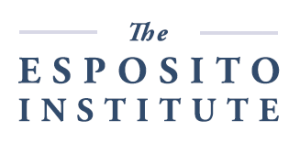How I Healed Chronic Pain Without Drugs
Most physicians are not trained to deal with suffering as a doorway or as a catalyst for transformation. ~ Dean Ornish, MD
This story is for people who have symptoms of chronic pain and who are miserable. They’ve tried everything traditional medicine has to offer and it isn’t helping.
If you are ready to give up because you have chronic pain, I believe there is hope for you because I was once in your situation.
I had moderate to excruciating facial pain for five years. I took all the drugs my doctors recommended and nothing helped. Medicine can be an extremely useful tool, but sometimes it doesn’t stop the pain, plus there can be undesirable side effects.
I found a way to eliminate the horrible facial pain without drugs. How? There is a powerful connection between our body, mind, spirit and emotions. You will see this in the following story.
Description of My Pain
For five years my facial pain was never lower than a four on a scale where ten is high. I had a constant dull grinding ache on good days. The pain would reach level ten at least once a week, sometimes more.
At level ten, the pain was like biting down on a live electric wire.
Hot, electric, sharp zaps. It felt like my teeth would melt out of my head. I constantly feared the next pain episode.
When compared to childbirth, it would be hard to say which one was more intense. Childbirth may be slightly more painful, but I knew it was not going to last forever. That helped me tolerate the pain. With the facial pain, I had no idea when it was going to stop. I wondered if one day I would start hurting and it would never stop. It was terrifying.
The Pain History
I felt the facial pain for the first time in 2013 when we were traveling to Florida to visit my husband’s family. About halfway through a 12-hour drive, I started getting what I thought was a toothache. I spent that whole week nursing this toothache with ice packs and over-the-counter pain medications with no relief.
When we came back home, I went to a local walk-in clinic where I was treated for a sinus infection. There wasn’t any evidence of a sinus infection, but they said that is what it must be given the symptoms. I took a round of antibiotics but still was getting random face pains.
I went back to the walk-in clinic where they once again treated me for a sinus infection. I finished another round of antibiotics. When they didn’t help for the second time, I gave up and tried to live my life around the pain. The pain was periodic at this point.
I became pregnant with my second child in 2014. During this time I didn’t have much facial pain. When I did, it didn’t last very long. They were ten to 15-minute episodes. By the time my second daughter was born in October 2014, the pain was gone. I had almost forgotten about it.
In early 2015 it was brought to my attention by some family members that I seemed withdrawn, and they felt I had some sort of social anxiety. Not being social didn’t feel abnormal to me because I’m fairly introverted, but I took the observation to heart and saw a local general practitioner (GP).
The GP agreed that not wanting to be around people could be social anxiety and prescribed Lexapro. I promised my mother, husband, and in-laws that I would give it a try.
After a few weeks, I was a different person on the outside at least. But for the first few months, I struggled on the inside. I became even more of a people-pleaser than I had been. I couldn’t say “no” even when I was screaming “no” on the inside. I disliked social gatherings, traveling, and socializing with people I didn’t know. I said “yes” because I knew that’s what everyone wanted me to do.
I have always struggled with standing up for what I wanted because I care about how other people feel. This wasn’t new. What was new was that Lexapro made it so easy for me to do what others wanted me to do.
It took a few months, but once the screaming inside subsided, I could make everyone happy with ease. Everybody liked this version of me. It was around this time that the face pain returned. I wasn’t that worried at first. I had experienced it before and while it was excruciating, I knew it wouldn’t last forever.
Over several months, I tried carbamazepine, topiramate, oxcarbazepine, gabapentin, and phenytoin. Each was prescribed individually at various doses and then combined with two or more at a time at different doses. There were medication-free months in between the changes in medications. None of them reduced my pain. They caused brain fog, forgetfulness, and some of them made me extremely tired all day long.
I went back to the GP that prescribed the Lexapro. I described my pain to her and asked her if Lexapro could cause this type of pain. She told me “no” and prescribed an antibiotic for a sinus infection. She said, “If this doesn’t help, I want you to see an ear, nose, and throat doctor.”
I took a 15-day prescription and then returned to the GP. I told her it wasn’t helping, and at this point, the pain was almost constant. She prescribed some pain medication, more antibiotics, and scheduled me to see an ear, nose, and throat doctor.
I had to wait for several weeks for my appointment. During this time, I realized that the pain meds didn’t work at all. Not even a little. The only thing that would relieve my pain was a hot shower. The relief was temporary, but at least I knew what to do when the pain was too much to handle.
I finally got to see the ear, nose, and throat doctor. He told me that he didn’t think it was sinus-related and ordered a CT scan. When the scan results came back, he said there was zero chance this pain was caused by a sinus infection. He asked me if I had ever heard of Trigeminal Neuralgia and referred me to a neurologist.
After another CT scan, I was officially diagnosed with Trigeminal Neuralgia. It is a chronic pain condition that affects the trigeminal nerve, which carries sensation from your face to your brain. Even mild stimulation of your face — such as from brushing your teeth or putting on makeup — may trigger a jolt of excruciating pain. The doctor could not explain what caused it.
For almost a year I worked with the neurologist and the GP trying to find something that would help the pain. Nothing worked. I focused on raising my two little girls and figuring out how to live my life around the pain.
I stopped getting invited to every little social gathering my family had. Less was expected of me since I was living with chronic pain. The pain decreased in frequency, and when it did come, it was for short episodes. The pain was manageable.
I started getting invited to social gatherings again, which I turned down most of the time. I still had bad pain days. Once again, I accepted that my life revolved around the pain. I knew how bad it could be, and I was thankful it wasn’t constant intense pain.
In 2018 it was once again brought to my attention that I seemed withdrawn. They said, “Your medicine must not be working anymore.” I went to the GP and she more than doubled my dosage of Lexapro. After a few weeks, my “yes woman” returned.
Not long after that, the pain became constant again.
I reached my breaking point in December 2018.
There were no more medications to try. There was no clear nerve compression indicated on the CT scan. The doctor said that surgery was an option, but it was purely exploratory and very expensive and risky.
I felt I was at a dead end. I didn’t know how much longer I could live with the excruciating pain. I felt like I was letting my kids down because I couldn’t be the mom I wanted to be. I had tried so hard not to give up, but it was grueling. I had nothing left to give. The pain was always there or right around the corner. I was exhausted.
The Turning Point
I knew I had to talk to someone. I called my mom and she came over to my house. She called my GP and told her that I was at a breaking point. The chronic pain and depression was more than I could bear.
My mother asked the GP if there was anything she could do. The doctor said, “I can’t help you. Go to the emergency room.”
We went to the closest emergency clinic. The doctor talked to me about living with chronic pain and how it can be difficult. She wanted me to stay on the Lexapro and she added another antidepressant.
I left there feeling more defeated than when I went in. My mom suggested spiritual counseling until I could find something to reduce the pain.
My first thought was, “That’s for crazy people.” My second thought was my own mom would rather pay someone to talk to me than actually talk to me herself.
Thankfully, my third thought was to find someone and give it a try. What did I have to lose? My only other option was exploratory brain surgery that had little to no chance of successfully helping my pain.
In January 2019, I started sessions with Benita Esposito.
After my first session, two things happened.
1. I realized I was dealing with a lot more than just physical pain. I had a lot of emotional pain, too.
2. The frequency and the duration of my facial pain reduced by nearly half.
Benita had intuitively sensed that I tensed up my jaw muscles when I was emotionally upset. That stimulated the pain pathway. I was dumbfounded to learn how emotional pain and stress could have an effect on my physical body.
After one month with Benita Esposito, the pain was almost gone. When the pain did return, I knew how to get rid of it quickly by using the relaxation and meditation skills that Benita had taught me.
After one year of working with Benita, I have learned the following:
1. Meditation and relaxation skills can combat pain, stress, and anxiety.
2. When I feel intense emotions, my body tenses up, especially my jaw muscles.
3. I am a Highly Sensitive Person. I feel emotions much more deeply than most people.
4. Twenty percent of the population is highly sensitive. I’m not the only one. I am not alone.
5. I no longer feel ashamed for being so sensitive.
6. I understand how to process difficult emotions.
7. I can stand up for myself with more confidence instead of being a “yes woman.”
8. I know my thoughts affect my physical health.
9. Self-compassion has begun to replace self-criticism.
Pain no longer runs my life.
I hope that more medical practitioners will refer their patients for spiritual counseling and therapy to reduce physical and emotional pain.
What else did Benita help me with?
I have always had difficulty articulating what I am thinking or feeling, especially when I am speaking. Instead of judging me, Benita Esposito patiently deciphers what I mean to say. Somehow, she knows how to find just the right words. I feel safe to share my feelings because Benita expresses a beautiful balance of strength, understanding, professionalism, and calmness. She helps me understand negative patterns that are causing problems, where they come from, and how to break free from them. We work through my struggles and we celebrate my wins.
Conclusion
I am still on my personal growth journey. Meditation, learning to love myself and listening to my body and to my Authentic Self have become every-day treasures. I can actually live a fulfilling life now. I don’t have to fear the pain anymore. I know what causes it. I know when it is coming and what to do to calm it.
Working with Benita has given me my life back.
If you suffer from chronic pain, don’t give up. I hope my story encourages you to let go of the stigma of asking for help. Keep looking until you find a practitioner who is a good fit for you. I’m so grateful that I did, and I pray that you will find one, too.
Written by a client who wishes to remain anonymous.
 Contact Information
Contact Information
Benita A. Esposito, MA provides life coaching and spiritual counseling worldwide via videoconferences. If you would like a complimentary 10-minute get-acquainted chat to see if you are a good match for her services, please complete the Contact Page.
If you would like to get to know Benita A. Esposito, read her bestselling book, a memoir and teaching stories available on Amazon.com. The Gifted Highly Sensitive Introvert: Wisdom for Emotional Healing and Expressing Your Radiant Authentic Self.
If you are interested in an intensive retreat, click here for the retreat schedule.
Curing is when the physical disease gets measurably better. Healing is a process of becoming whole. Returning healing to medicine is like returning justice to law. ~ Dean Ornish, MD











Leave a Reply
Want to join the discussion?Feel free to contribute!